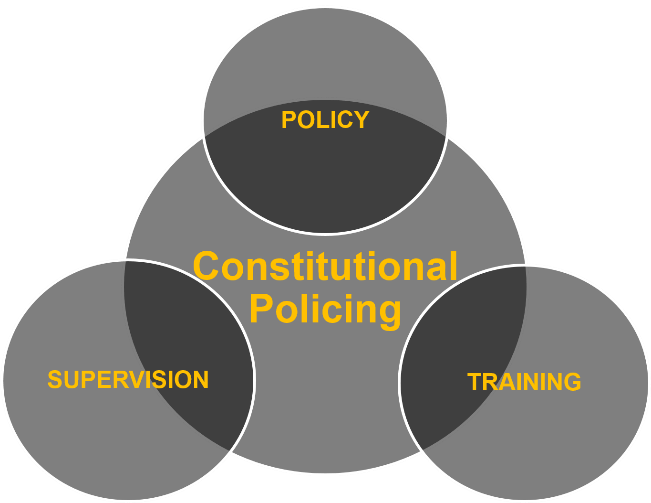Introduction
Constitutional policing is a concept that refers to police practices that are consistent with the United States Constitution and its amendments. This means that police officers must respect the rights and liberties of citizens while also enforcing the law. Constitutional policing is essential for maintaining public trust in law enforcement and ensuring that police officers are held accountable for their actions.
The History of Constitutional Policing
The history of constitutional policing dates back to the creation of the United States Constitution in 1787. The Constitution established the framework for government and established the fundamental rights and liberties of American citizens. These rights include freedom of speech, religion, and the press; the right to bear arms; the right to a fair trial; and protection against unreasonable searches and seizures.
Over the years, the interpretation and application of these rights have been shaped by landmark Supreme Court cases such as Miranda v. Arizona (1966), which established the right to remain silent and the right to an attorney during police interrogations. These cases have also established the principle of “probable cause,” which requires police officers to have a reasonable suspicion of criminal activity before conducting a search or seizure.
Overall, the history of constitutional policing reflects the ongoing struggle to balance law enforcement with individual rights and liberties.
The Principles of Constitutional Policing
Constitutional policing is guided by several principles the values and principles of the United States Constitution. These principles include:
• Respect for individual rights and liberties• Fairness and impartiality• Transparency and accountability• Community engagement and partnership
These principles reflect the importance of balancing law enforcement with the protection of individual rights and liberties. They also emphasize the importance of building trust and collaboration between law enforcement and the communities they serve.
The Practices of Constitutional Policing
Constitutional policing is implemented through a variety of practices and policies that aim to uphold the principles of the United States Constitution. These practices include:
• Use of force policies that prioritize de-escalation and minimize the use of deadly force• Training programs that emphasize constitutional principles and community engagement• Data collection and analysis to identify patterns of bias and discrimination
• Community policing initiatives that promote collaboration and trust between law enforcement and the community
These practices reflect the importance of proactive and preventative policing that prioritizes community engagement and collaboration.
The Importance of Constitutional Policing in Modern Law Enforcement
Constitutional policing is essential for maintaining public trust in law enforcement and ensuring that police officers are held accountable for their actions. It also helps to prevent abuses of power and violations of individual rights and liberties. In today’s social and political climate, constitutional policing is more important than ever, as communities across the country continue to demand accountability and transparency from law enforcement.
Statistics on Constitutional Policing
According to a 2019 survey by the Pew Research Center, 84% of Americans believe that police officers should be held accountable when they use excessive force. Additionally, a survey by the National Police Foundation found that 93% of police officers believe that it is important to establish trust and positive relationships with the communities they serve.
These statistics reflect the growing awareness and importance of constitutional policing in modern law enforcement.
Resources for Constitutional Policing
There are several resources available for law enforcement agencies and officers who want to implement constitutional policing practices. These resources include:
• The International Association of Chiefs of Police (IACP) Center for Police Leadership and Training
• The National Association of Civilian Oversight of Law Enforcement (NACOLE)• The National Institute of Justice (NIJ) Law Enforcement Advancing Data and Science (LEADS) program
These resources provide training, research, and best practices for implementing constitutional policing practices.
The Future of Constitutional Policing
The future of constitutional policing will depend on ongoing efforts to build trust, transparency, and accountability between law enforcement and the communities they serve. This will require a commitment to ongoing training, data collection and analysis, and community policing initiatives. It will also require a willingness to listen to and respond needs and concerns of the community.
Conclusion
Constitutional policing is a critical concept that reflects the importance of balancing law enforcement with individual rights and liberties. It is essential for maintaining public trust in law enforcement and ensuring that police officers are held accountable for their actions upholding the principles and practices of constitutional policing. Law enforcement agencies and officers can build positive relationships and collaboration with the communities they serve.








